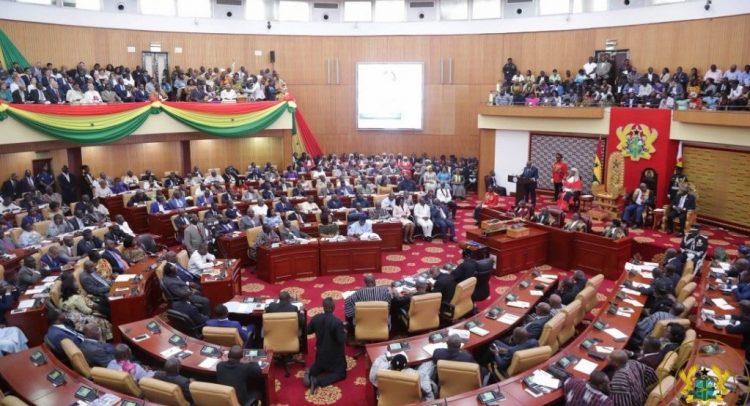Parliament yesterday passed the Council of State Bill, 2020, brought to the House by the Attorney General and Minister of Justice, Gloria Afua Akuffo, on October 6 this year.
It went through further consideration after the process to pass it was “arrested” by the Minority Leader, Haruna Iddrisu.
The Bill will which is now awaiting presidential assent provides for the establishment of relevant structures for the realisation of the mandate of the Council of State and for related matters.
The Attorney General, in a memorandum accompanying the Bill, indicated that right from its inception, the Council has been relying on the administrative services provided by few officials on secondment from other institutions.
“It has, therefore, become imperative to enact a law to establish the necessary structures to provide for the establishment of a secretariat to provide professional and administrative support for the effective and efficient delivery on the mandate of the Council of State.”
Summary of Provisions
The Bill contains 20 Clauses and a Schedule, and Clauses 1 to 3 of the bill provide for the functions of the Council of State which include counselling the President in the performance of his or her functions, consideration of Bills and advising President on certain key appointments by the President.
Clauses 4 to 9 provide for the governance of the Council of State. Key provisions relate to re-enactment of the composition of the Council, tenure of office of members of the Council, meetings and appointment of committees.
Matters relative to the administration of the Council of State, including appointment of Executive Secretary and other staff provided for under Clauses 10 to 13 of the Bill.
Funds for the Council of State, keeping of books of accounts, preparation of annual reports among other financial provisions are covered by Clauses 14 to 17 of the Bill.
Miscellaneous provisions, including power to obtain information, regulations and interpretation are set out under Clauses 18 to 20 of the Bill.
Observations
The Committee on Constitution, Legal and Parliamentary Affairs observed during the deliberations that despite the crucial mandate of the Council of State within the governance system of the country, it is bereft of the necessary administrative structure to propel the smooth execution of its mandate.
This has severely hampered the smooth functioning of the Council as the withdrawal of seconded staff deprives the Council the institutional memory and continuity required for effective performance of its functions.
Power to Access Information
In view of the utmost importance of information to the effective discharge of its constitutional mandate, the committee noted the power granted to the Council of State to request information from ministers of state, the Parliament and any other authority established by the Constitution.
In order to expand the exercise of this power to assist the work of the Council, the committee proposes an amendment that would allow the Council to seek information also from authorities established by Acts of Parliament.
The exercise of the Council’s power to obtain information would, however, be subject to the Right to Information Act, 2019 (Act 989) and the Data protection Act, 2012 (Act 843).
By Ernest Kofi Adu, Parliament House


